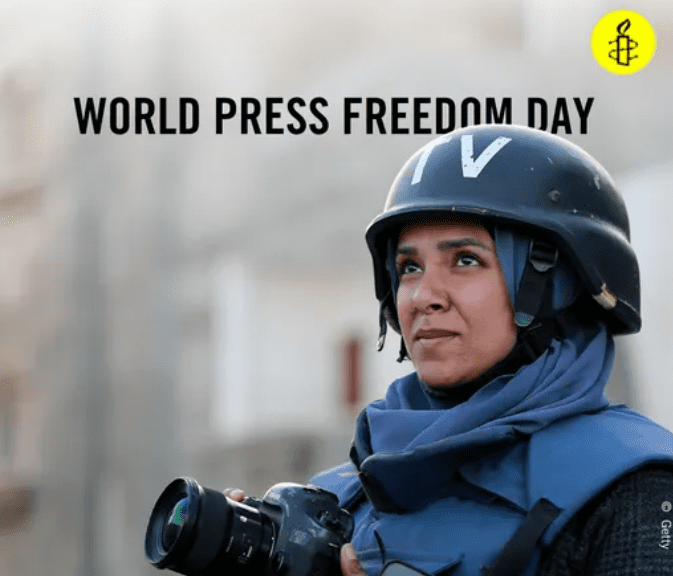By Amnesty International USA Country & Thematic Specialists
In recognition of World Press Freedom Day on May 3rd, 2024, Amnesty International USA’s Country and Thematic Specialists are championing the crucial role of journalists in upholding human rights worldwide. The human right to freedom of the press has been challenged along with escalating conflict in the world’s most volatile situations.
- The Russian government’s suppression of press freedom has intensified, as it continues to silence journalists who shed light on the truth about the war in Ukraine;
- Mexico is the most dangerous place for journalists in the Western Hemisphere, despite having a mechanism for their protection since 2012;
- In the Occupied Palestinian Territories, truth is often obscured by extraordinary violence.
- China, Yemen, Burundi, and North Korea are also countries where journalists’ lives are frequently at risk.
Along with highlighting these areas, we call for advocacy, demand accountability, and strive for a world where journalists can report without fear.
Russia
Just a week after invading Ukraine in February 2022, the Russian government introduced censorship laws to criminalize and silence any dissent or criticism of the war. Even the use of the word “war” in reference to the “special military operation” became a crime. Description of war crimes committed by Russian forces was denounced as “fake,” and “discreditation” of Russian military personnel could result in a prison sentence of up to 15 years.
Since then, there has been an increase in the number and length of prison sentences imposed for comments on social media against the war, and this year, a new law has been passed that allows confiscation of property of those convicted under the war censorship laws. Many journalists and anti-war activists have left the country, but the crackdown continues.
Maria Ponomarenko is a journalist, activist, and mother of two from Western Siberia. After posting a video and short description of the bombing of a well-known theater in Mariupol, Ukraine, she was sentenced to six years in prison for spreading “fake information” about the activities of Russian troops. Her sentence also bans her from working as a journalist for five years after her release. As an apparent reprisal, she faces an additional charge, which could be used to extend her sentence by five years.

In solidarity with Maria Ponomarenko and other journalists serving time in prison under Russian war censorship laws, sign this petition demanding their immediate and unconditional release.
Mexico
Since 2022, Amnesty International and the Committee to Protect Journalists (CPJ) have joined forces to address the alarming violence against journalists in Mexico, the most dangerous country for journalists in the Western Hemisphere. Since 2012, 88 journalists and media workers have been killed, with 37 of those murders connected to their work. Mexico also has the highest number of missing journalists globally, with at least 15 confirmed missing, and yet there have been no convictions for these cases.
This is despite Mexico’s Mechanism for the Protection of Human Rights Defenders and Journalists, a legal framework meant to safeguard journalists at the federal level. This mechanism was established in 2012 after President Felipe Calderón signed a law to protect human rights defenders and journalists.
However, Amnesty International and CPJ have identified serious flaws in the mechanism’s handling of high-risk situations. For example, eight journalists have been killed while under its protection since it started. From 2017 to 2022, at least one journalist was killed each year under protection.
Amnesty International and CPJ have highlighted this, along with three case studies in a report entitled, Protect the Press- ‘No One Guarantees My Safety’: The urgent need to strengthen Mexico’s federal policies for the protection of journalists.
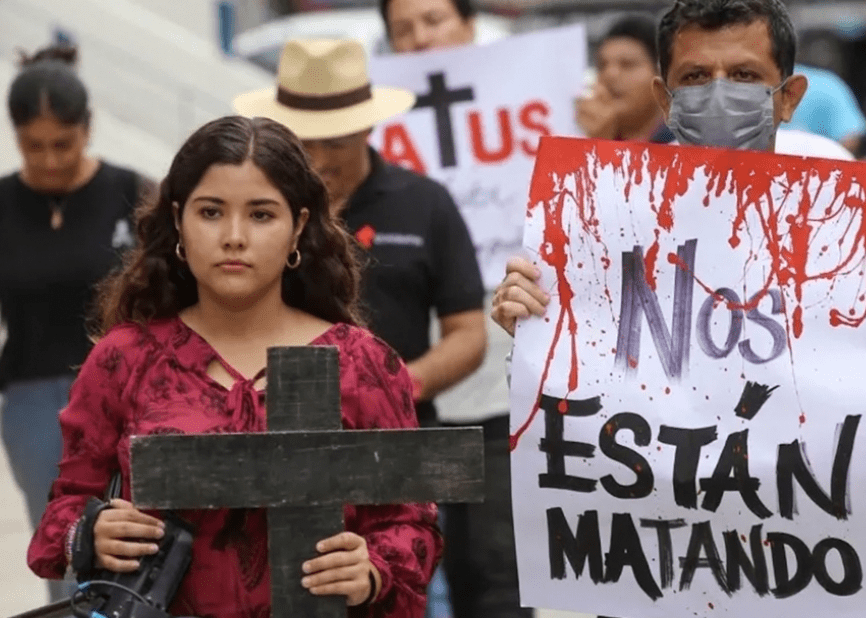
The cases are: reporter Rubén Pat Cauich, who was shot dead in Playa del Carmen in the state of Quintana Roo on July 24, 2018; journalist Gustavo Sánchez Cabrera, who was shot dead near his home in Morro de Mazatán, in the state of Oaxaca, on June 17, 2021; and Alberto Amaro Jordán, a journalist from the state of Tlaxcala. In the last few years, Amaro has been beaten, threatened, and arrested by police officers, intimidated by alleged members of a drug cartel, suffered an attempted break-in, and had shots fired at his house, among other attacks. All three journalists had previously sought the Mechanism’s protection prior to their murder.
China
In February 2020, Zhang Zhan, a citizen journalist, traveled to Wuhan, which was then the center of the COVID-19 outbreak in China. She used online platforms (including WeChat, Twitter – now ‘X’, and YouTube) to report on the detention of other independent reporters as well as the harassment of victims’ families. Zhang Zhan went missing on May 14, 2020, in Wuhan and was subsequently revealed to have been detained by police in Shanghai, more than 640 km away. She was sentenced to four years in prison on the charge of “picking quarrels and provoking trouble” on December 28, 2020. She is carrying out a partial hunger strike to protest her guilty verdict. This has had serious impacts on her health, resulting in multiple hospitalizations. When she was admitted to the hospital in July 2023, she weighed just 37 kilograms (81.6 pounds).
Zhang Zhan is scheduled to be released on May 13, 2024, however, Amnesty International received unconfirmed reports that she would be released in late May. This is unacceptable.
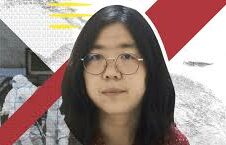
Furthermore, most former prisoners of conscience were placed under police surveillance immediately after they were released, and some of them even experienced restrictions in day-to-day activities away from home. We are calling on the authorities to release Zhang Zhan immediately without surveillance and restriction of liberty, so that she can freely seek any medical treatments she needs to restore her health.
Yemen
Journalists seeking to exercise their right to freedom of expression have been subjected to crackdowns, harassment, and prosecution by all parties to the conflict in Yemen.
Ahmad Maher, a 28-year-old Yemeni journalist, was arrested on August 6, 2022, by security forces in Aden on charges of disseminating false and misleading news and forging identity documents. During interrogations at the Dar Sa’ad police station, security forces subjected him to torture and other ill-treatment to force him to “confess” to being involved in an attack on Dar Sa’ad police station in March 2022.
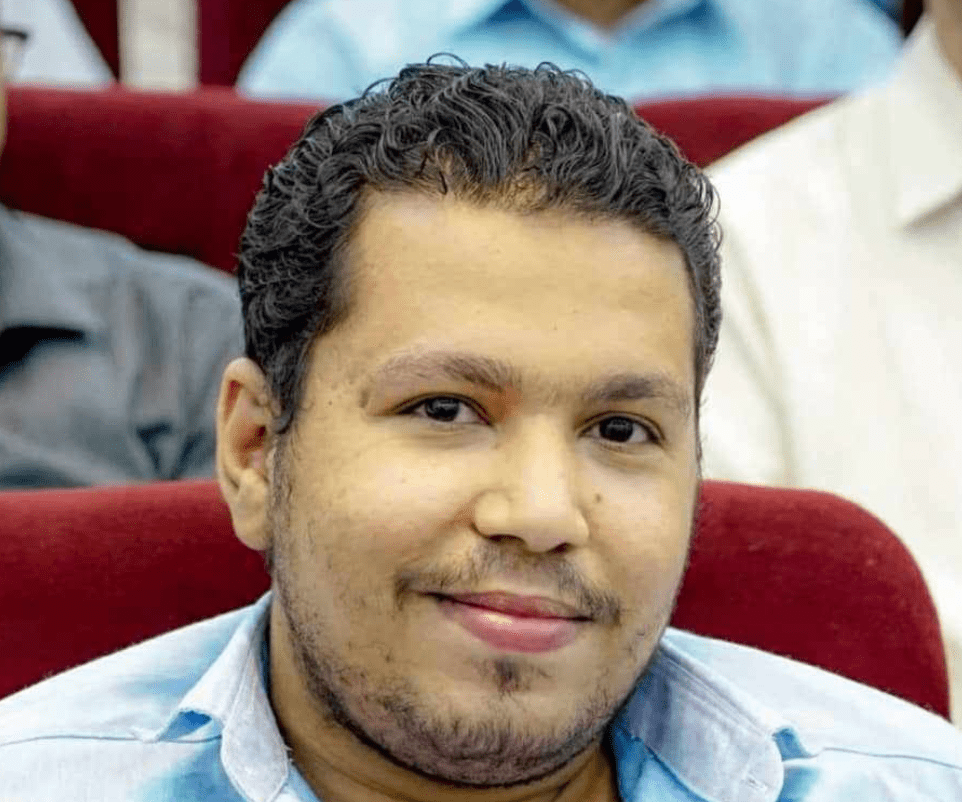
On February 22nd, the Sana’a-based Specialized Criminal Court (SCC) – a court traditionally reserved for security-related crimes – sentenced journalist Nabil al-Sidawi to eight years in prison following a grossly unfair trial on trumped-up, serious charges including spying.
On November 19, 2023, journalist Naseh Shaker disappeared while passing through the city of Aden on his way to travel through Aden International Airport to participate in a training course held outside the country. According to informed sources, the last contact between him and his family took place on the morning of his disappearance, after which contact with him was cut off.
On October 27, 2023, journalist Wafaa Al-Matari was arrested due to her sit-in in the city of Taiz to demand her rights. She was detained in Al-Saleh Prison for Women in the same city for 11 days, and was only released on bail by a commercial guarantor on November 8, 2023.
In 2022, judicial authorities prosecuted at least three journalists for publishing content that was critical of official and public institutions. A fourth journalist was summoned by the criminal investigation directorate for questioning over a critical Facebook post and arbitrarily detained for around 9 hours.
Amnesty International is asking all parties for the immediate and unconditional release of those journalists who are imprisoned solely for peacefully exercising their right to freedom of expression. All parties to the conflict must end harassment and prosecution of journalists and respect their rights to freedom of expression.
Burundi
On March 30, 2023, the Court of Appeal of Mukaza in Bujumbura, Burundi held a hearing session on the case of Burundian journalist Floriane Irangabiye. She had appealed the January 2nd decision of the High Court of Mukaza, which convicted her of the trumped-up charge of “undermining the integrity of the national territory” and sentenced her to 10 years in prison and a fine of one million Burundian francs (around USD 482). Floriane Irangabiye has been detained since August 2022. Her prosecution stems from the peaceful exercise of her human rights and for her work as a journalist. Amnesty International calls for her immediate and unconditional release and for her conviction to be quashed.
Background:
Floriane Irangabiye has been living in Rwanda for more than a decade. Before the 2015 crisis, she used to make regular trips between the capital, Kigali, where she resides, and Bujumbura, Burundi, where her family lives.
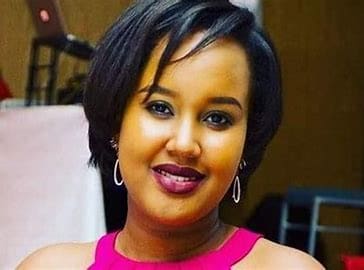
When former President Pierre Nkurunziza decided to run for a third term in office in April 2015, many Burundians took to the streets to express their frustration against the decision that they believed violated the 2005 Burundian Constitution, which limited presidential terms to two terms of 5 years. Her trip in August 2022 was the first time she visited her family in Bujumbura since 2015.
Burundi’s civil society and media organizations were among the first targets of the government repression in 2015. The government suspended or closed most independent human rights organizations and media outlets and drove them into exile. Despite promises by President Ndayishimiye to normalize relations with the media in 2021, the Burundian government continues to view the press and human rights work with suspicion, and severe restrictions on human rights, including the right to freedom of expression, remain in place. Most independent human rights organizations have been unable to resume their activities in Burundi, especially as the Burundian authorities have issued arrest warrants for many leading activists, who live in exile.
On February 14, five human rights defenders, Sonia Ndikumasabo, president, and Marie Emerusabe, general coordinator, of the Association of Women Lawyers in Burundi (Association des femmes juristes du Burundi, AFJB), Audace Havyarimana, legal representative, Sylvana Inamahoro, executive director, and Prosper Runyange, land project coordinator of the Association for Peace and Promotion of Human Rights in Burundi (Association pour la paix et la promotion des droits de l’Homme, APDH), were arrested and accused of rebellion and of undermining internal state security and the functioning of public finances. The charges appear to relate to their relationship with an international organization abroad and the funding they have received from this organization. Twelve human rights defenders and journalists were among a group of 34 people sentenced to life in prison in absentia in June 2020 on accusations of involvement in an attempted coup in May 2015; the Supreme Court judgment was not made public until February 2021.
Arrest or detention as punishment for the peaceful exercise of human rights, including the right to freedom of expression, is arbitrary and violates the African Charter on Human and Peoples’ Rights and the International Covenant on Civil and Political Rights, both of which Burundi has ratified. The UN Working Group on Arbitrary Detention has determined that those detained solely for the peaceful exercise of their human rights must be immediately released.
Democratic People’s Republic of Korea (North Korea)
Almost since its inception in 1948, no sources of information independent of the government have been allowed to exist. Pyongyang prohibits free expression, gatherings and meetings, and access to information. Freedom of thought and opinion is discouraged from cradle to grave, enforced by a vast and systemic monitoring by formal and informal internal security agents. Arbitrary arrest, prison camps, forced labor, torture, and execution are used by authorities to prevent dissent.
Severe punishments are imposed on North Korean citizens caught listening to or watching broadcasts from outside the country. Access to computers and the internet is restricted to highly-placed party officials. Unauthorized communication with people outside the country is forbidden. Amnesty International has reported on the execution of teenagers for viewing a South Korean television broadcast.
The government’s response to the COVID-19 pandemic included closure of borders and the installation of CCTV cameras and motion detectors, making it more difficult for information to enter the country. In December 2020, the DPRK enacted the Reactionary Ideology and Culture Rejection Law, prohibiting the viewing of “anti-socialist ideology and culture.” Since January 2023, the Pyongyang Cultural Language Protection Law stipulates punishment for the use of South Korean dialect or slang.
There are indications that, despite these restrictions, more people in some areas are able to receive broadcasts emanating from outside the country. This makes the work of outlets such as NK Radio, Radio Free Asia, and the Voice of America increasingly crucial.

